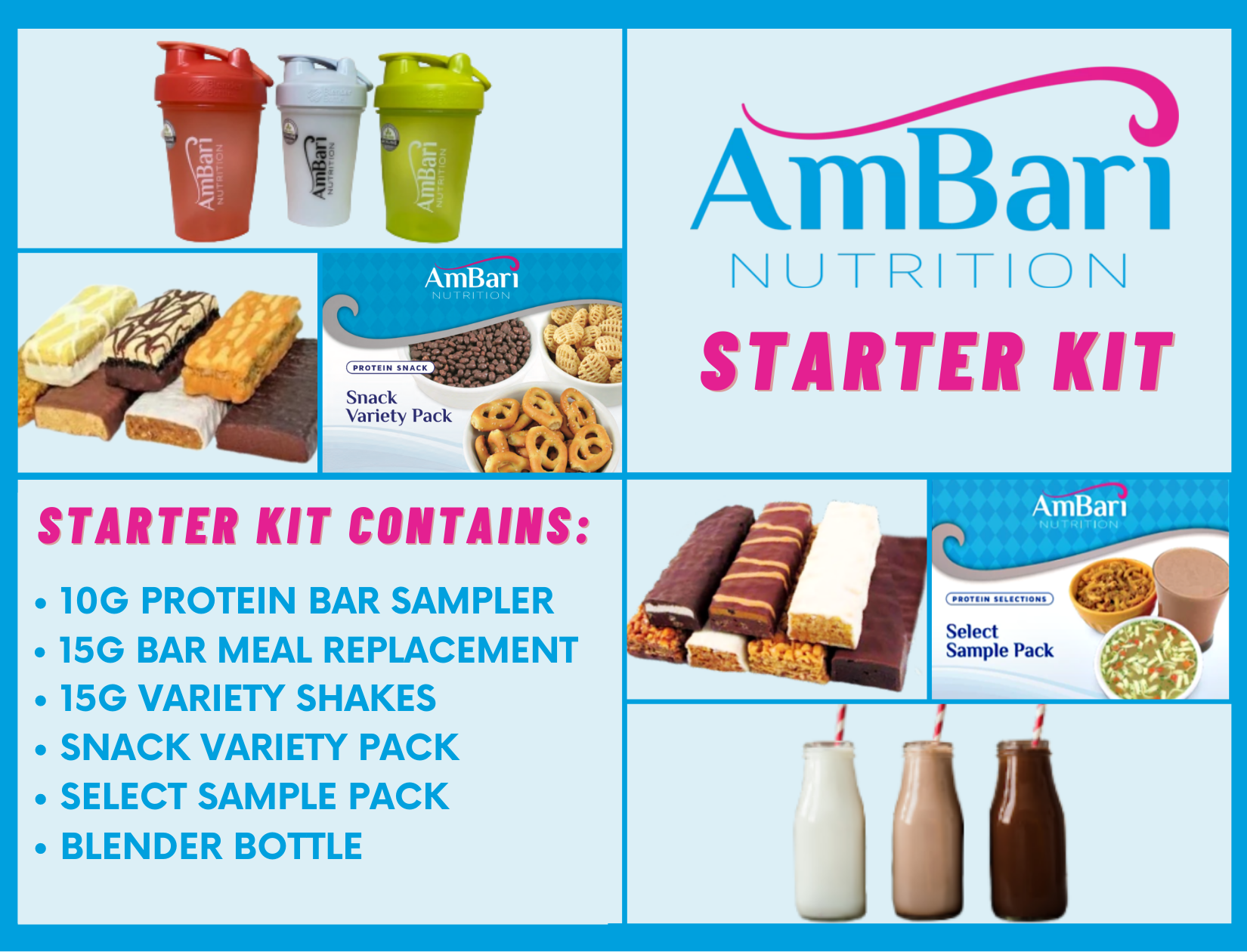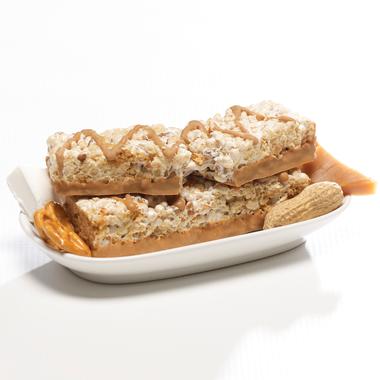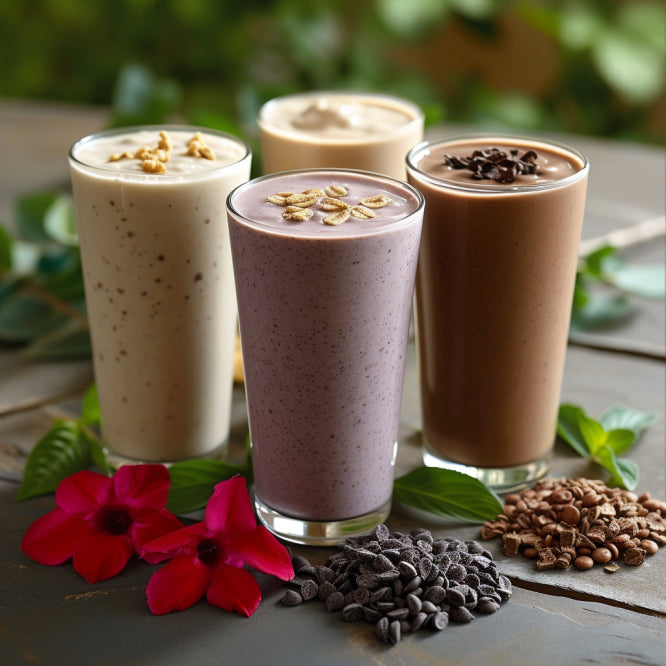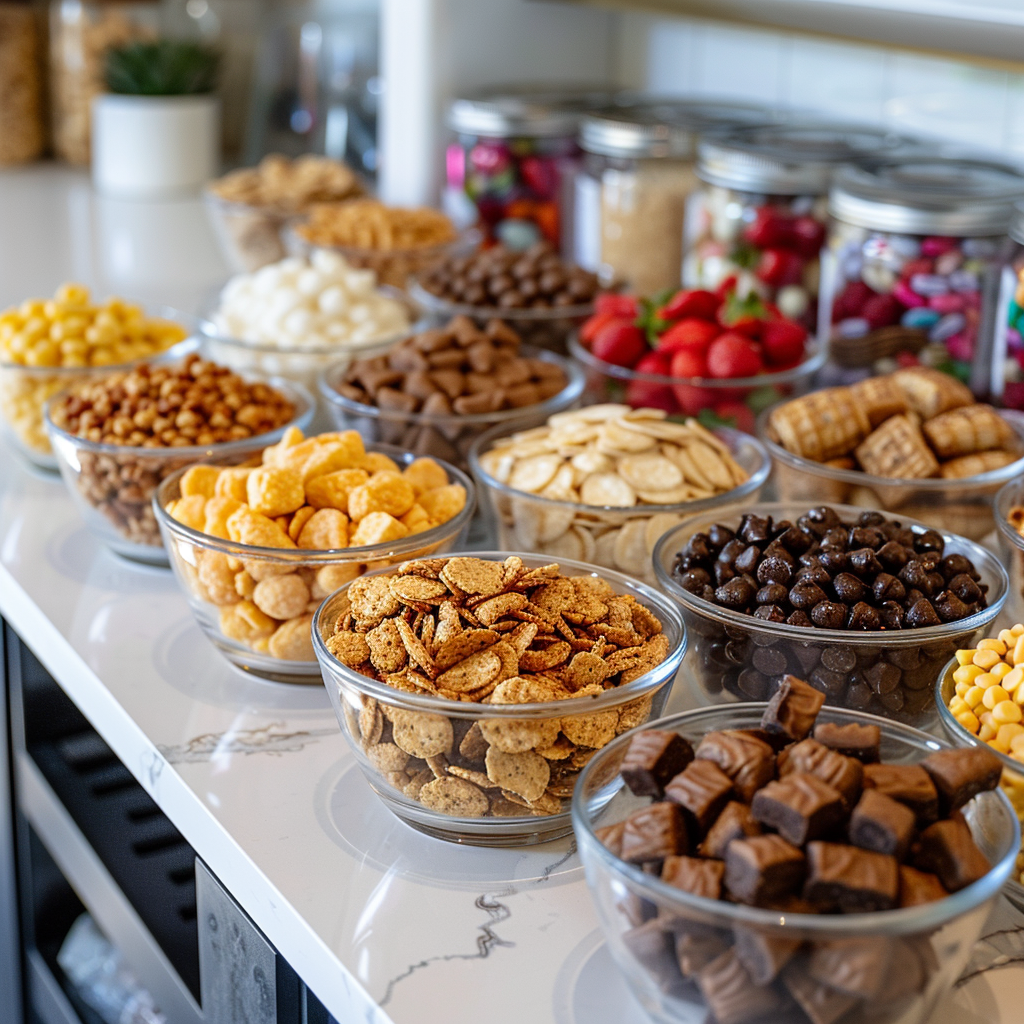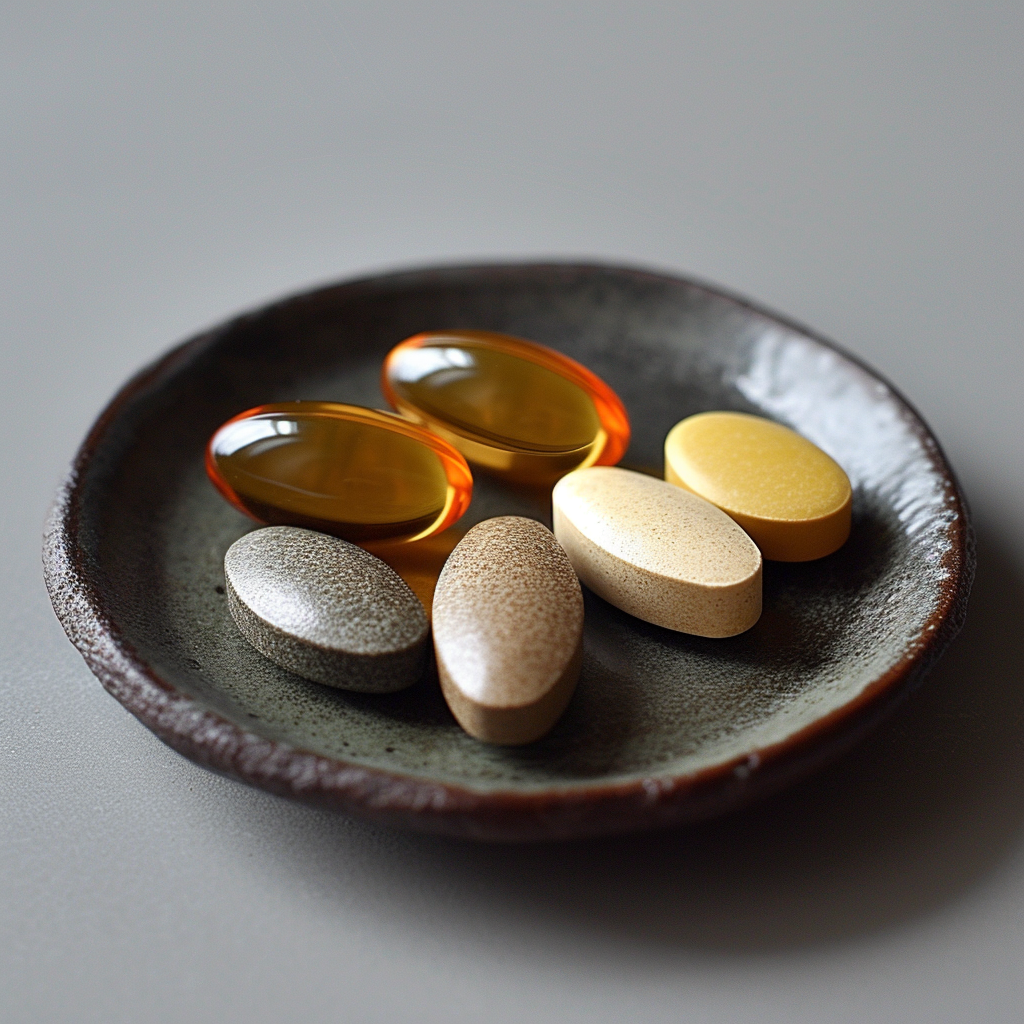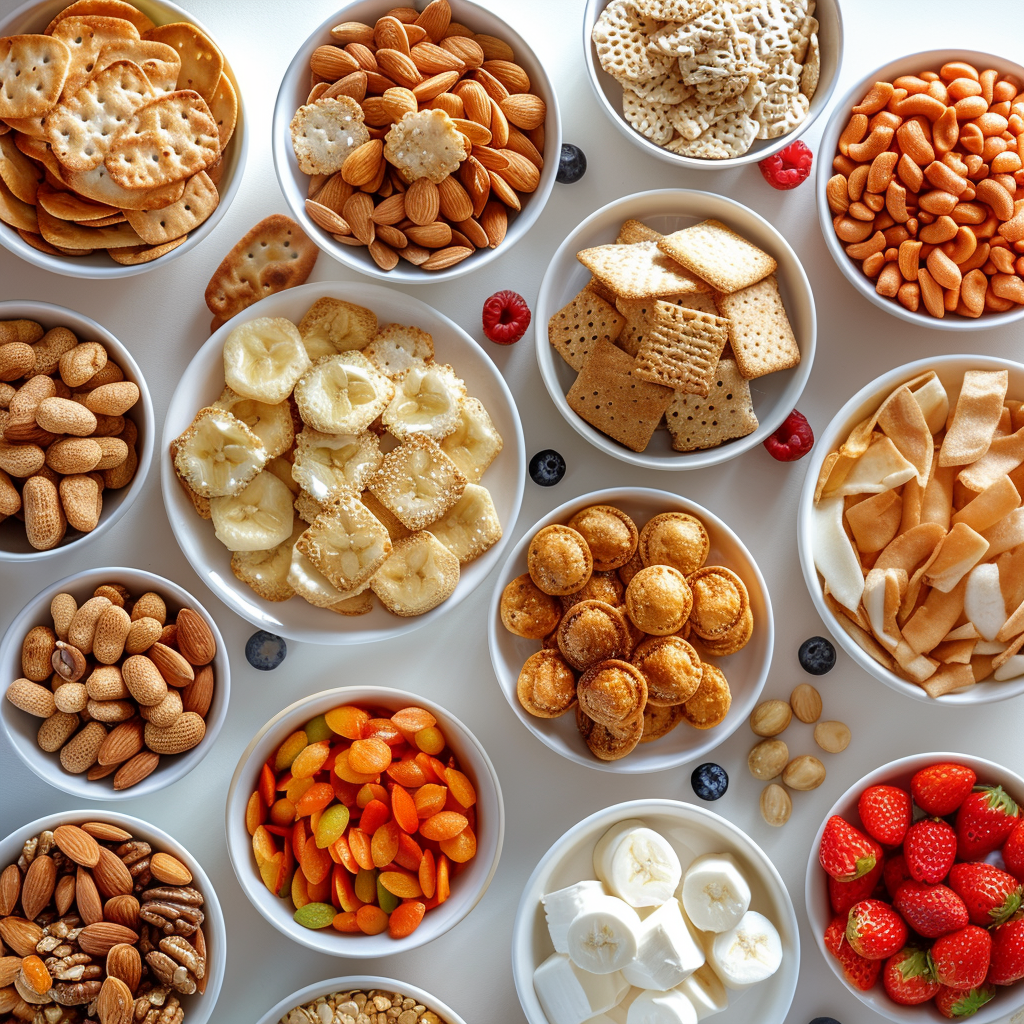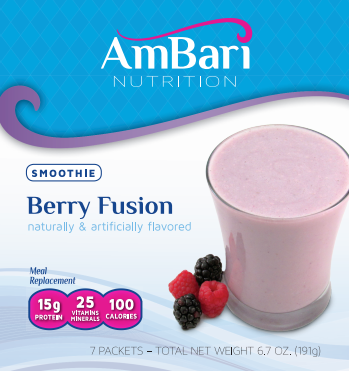Menu
Your cart is empty
Looks like you haven't added anything to your cart yet
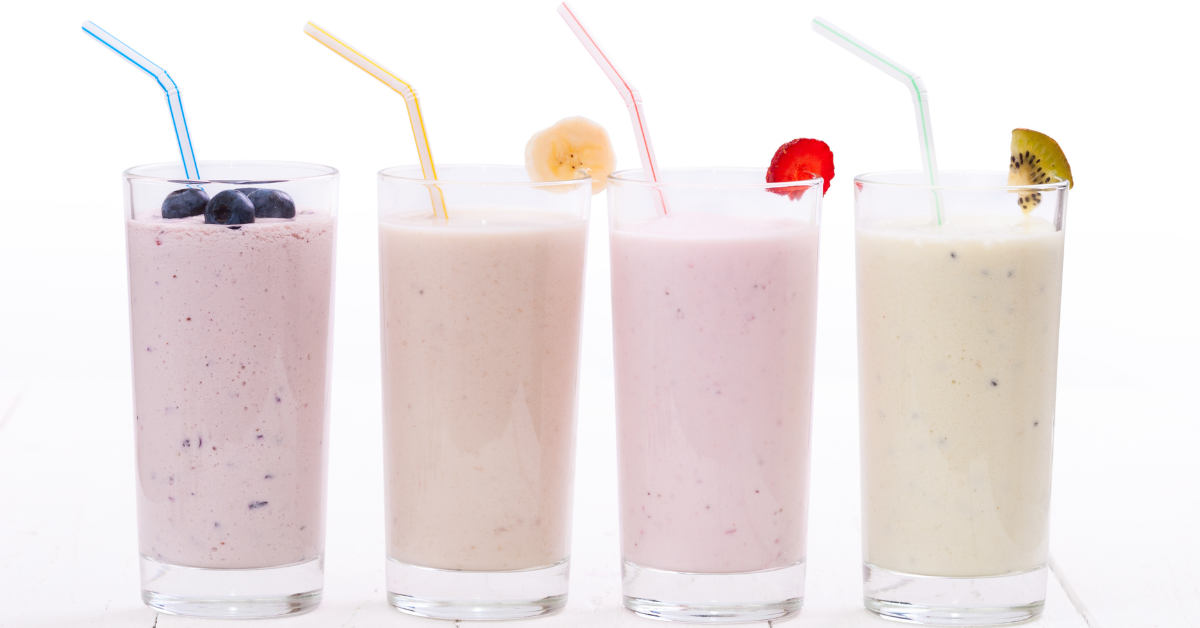
The Liquid Diet Before Bariatric Surgery: Everything You Should Know
Preparing for Bariatric Surgery: The Essential Liquid Diet
In preparation for bariatric surgery, having a period of following only liquid nutrition is extremely important. Consuming only liquids for the 2 weeks prior to surgery shrinks the size of the liver to allow access during the operation. Sticking to the liquid guidelines also drastically reduces complication risks and leads to better post-op results in terms of health and sustainable weight loss.
The idea of surviving on liquids alone for 14 days may seem daunting at first. However, in this guide you'll learn everything about the pre-surgery liquid diet including:
- Exactly what constitutes a "liquid"
- Rules for protein, vitamins and staying hydrated
- Allowed foods and meal ideas
- Tips to prevent struggles with hunger or boredom
- Potential side effects and how to manage them
What is a Liquid Diet?
When following a liquid diet before bariatric surgery, the term "liquid" refers to any foods or nutritious fluids that have a smooth, pudding-like consistency. Thick soups, protein shakes, and smoothies without any chunks of fruit or vegetables are all acceptable.
More specifically, here are examples of allowed liquids on a pre-surgery diet:
- Water
- Clear broths - chicken, beef, vegetable
- Decaffeinated coffee and tea
- Protein shakes or whey protein with water or milk substitutes
- Non-dairy milk alternatives like almond milk or soy milk
- Smoothies without seeds, pulp or fiber
- Sugar-free gelatin and popsicles
- Protein pudding
It's critical to choose liquids that are low in added sugar, fat, and fiber content. Sugary drinks like sodas, juices and sweet tea are too high in calories. Milk and cream based soups should also be avoided due to their fat content.
Focus on getting nutrition from high protein, vitamin-rich liquids as much as possible. Your doctor may advise taking chewable multivitamins while on the liquid diet as well.
The key is the smooth, easy-to-digest texture of liquids. Any solid foods or even liquids containing bits of fiber or pulp are strictly off limits. Blending solid foods into a drinkable liquid form is perfectly fine.
Benefits of a Pre-Surgery Liquid Diet

There are many important reasons why sticking to only liquids is a critical preparation step before bariatric surgery:
Helps Shrink the Liver
When the liver is smaller in size, the surgeon has an easier time accessing the stomach during bariatric procedures. Consuming only low calorie liquids for 2 weeks helps decrease liver volume through a reduction in glycogen stores.
Reduces Risk of Fatty Liver Disease
Rapid weight loss after surgery can cause an accumulation of fat cells in the liver. Starting a low-fat liquid diet prior helps avoid this excess fat build-up.
Leads to Pre-Surgery Weight Loss
Most patients lose a significant amount of weight in the 2 weeks leading up to their operation simply by following the liquid guidelines. Less weight in the abdominal area again equates to easier access for the surgeon.
Prepares for Smaller Portions Post-Surgery
The pre-op liquid diet serves as good practice for the small meal sizes required after bariatric surgery. The stomach pouch created will only hold 1/2 to 1 cup of food at a time.
Eases the Transition to Post-Op Diet
Since solid food won't be allowed immediately after surgery, patients who are already in liquid-diet mode won't feel an abrupt change in eating style.
As you can see, adhering to the liquid diet protocol before a bariatric procedure leads to the best results all around.

Timeframe for Following the Liquid Diet
The standard duration for adhering to a liquid diet before bariatric surgery is 2 weeks. Some bariatric programs allow solid foods in the first week which are then tapered down to only liquids in the second week. Others require strictly liquids throughout the entire 14 days leading up to the operation.
Follow the specific timeline provided by your bariatric surgery team. This often depends on:
- Type of bariatric surgery planned (gastric bypass, sleeve gastrectomy etc)
- Surgeon's preferences
- Patient's starting weight and health conditions
Here is a sample timeline of what a pre-surgery bariatric diet may look like:
- 2 weeks before: Limited solid foods allowed along with protein shakes
- 13 days before: Switch to liquid-only diet
- 48 hours before: Clear liquids only (plain broth, juice, water, popsicles) to empty digestive system
- Day before: No solid food, only clear liquids until midnight
- Day of surgery: Nothing by mouth for at least 8 hours pre-op as directed
As the date gets closer, the diet rules gradually become more restrictive. Just like during the recovery period, following instructions precisely leads to better bariatric surgery results overall.
Rules and Guidelines
When following a liquid diet before bariatric surgery, be sure to adhere to these general rules and daily intake goals:
Only Consume Allowed Liquids
Do not cheat or introduce any solid foods during this two week liquid phase. Stick to high protein smoothies and shakes, clear soups and broths, gelatin, and other easy to digest fluid options.
Focus on High Protein
Aim for 70-100 grams of protein from supplements and nutritious liquids to prevent the loss of too much muscle mass. Choose items like protein waters, Greek yogurt smoothies, and protein powders.
Stay Hydrated
Drink at least 64 ounces of calorie-free, non-caffeinated fluids per day. Water, sparkling water, decaf tea, and broth all count towards your daily fluid goals. Proper hydration is vital when following a limited diet.
Take Recommended Vitamins
Your doctor may advise taking bariatric multivitamins and calcium supplements to reduce nutritional deficiencies while eating very low calories and no solid foods.
Avoid High Calorie Liquids
Beverages high in sugar and fat like soda, juice and milkshakes can sabotage efforts to lose weight right before surgery. Alcohol should also be avoided completely.
Sample Meal Plan for One Day
Wondering what an actual day in the life of the pre-surgery liquid diet looks like? Here is an example:
Breakfast
- High protein shake
- Herbal tea or decaf coffee
Lunch
- Broth-based soup
- Sugar free gelatin cubes
- Sparkling water
Dinner
- Yogurt and berry smoothie with protein powder
- Clear vegetable broth
- Flavored seltzer water
Snacks
- Protein pudding made with almond milk
- Sugar free popsicles
- Hard boiled eggs blended into egg drop soup (for added protein)
As you can see, there is still variety possible even when limited to only liquids. Let your registered dietician know if you require help coming up with acceptable smoothies, shake flavors and soup choices.
The key is to choose options packed with protein, vitamins and minerals over empty liquid calories.
Foods to Avoid
While preparing for bariatric surgery, it's vital to avoid liquids high in sugar, fat and fiber content. Steer clear of these items:
Milk
All dairy milk is off limits, even skim or 1% milk, due to the high lactose content. Use unsweetened non-dairy milk instead.
Fruit and Vegetable Juice
Although juice provides vitamins, it's too high in natural sugar without the benefit of fiber. Stick to low-sugar vegetable juice options if allowed.
Alcohol
Alcohol is extremely restricted leading up to a major surgery. Not only is it a solid food, but it can interact poorly with anesthesia and lead to bleeding risks.
Seeds and Pulp
Fruit and veggie smoothies cannot contain any seeds, pulp or fiber pieces which are challenging to digest. Blend ingredients into very smooth consistency.
Soup with Grains or Beans
While broth-based soups are great, avoid add-ins like rice, quinoa, lentils or other grains/legumes as they constitute solid foods.
Check with your bariatric dietitian if you have any questions about whether a particular liquid is permissible or not. Remember, no chewing should be involved at all.
Potential Side Effects
It's very common to experience some unpleasant symptoms when transitioning to a liquid-only diet for two weeks straight. Here are some possible side effects along with tips to relieve them:
Hunger
It's natural to feel hungrier than usual with such a limited calorie intake. Distract yourself with activities, increase protein, and chew sugar-free gum.
Fatigue
Sudden calorie restriction can sap energy. Caffeine is restricted but stay active with short walks and sleep enough.
Irritability
Hunger and fatigue often cause mood changes. Practice stress-relieving activities like meditation, yoga, or talking to a counselor.
Headaches
Headaches are common with dehydration and low blood sugar. Treat with allowed fluids, protein, rest, and OTC pain meds if cleared by your physician.
Constipation
With zero fiber intake, constipation often occurs. Stay hydrated, exercise, take stool softeners per your doctor's guidance.
Diarrhea
If protein intake is too high it can cause diarrhea. Lower protein shakes to once a day and rely on broth and clear liquids instead.
Other Recommended Guides:
The Day Before Surgery
The 24-48 hours prior to your scheduled bariatric procedure may have additional restrictions on what liquids are permitted:
Typically Clear Liquids Only
Expect to only allow clear broth, gelatin, juice, popsicles and water. Some programs exclude juice and allow plain water only.
Follow Surgeon Recommendations
Your specific cutoff times for different liquid types will be provided by your bariatric surgery team. This varies depending on operation start times.
Stop Liquids 6-12 Hours Pre-Op
All liquids must be stopped within this timeframe before surgery to avoid anesthesia risks and aspiration. Follow directions closely.
Ice Chips May Be Allowed
If your mouth is very dry, you may be advised to suck on ice chips up to 2-3 hours before surgery. Double check with your nurse.
Track Fluids Consumed
Note the timing and amounts of your last sips of allowed liquids. Your care team will want to review this prior to administering anesthesia.
Preparing for surgery is more involved than just altering your diet. You will also need to bathe surgically, take any pre-op medications as instructed, and plan your transportation and caregiver needs for discharge.
Rest, relax, and hydrate as much as allowed the day before your bariatric operation. The exciting first steps of your weight loss journey begin soon!

Conclusion
While challenging at times, sticking to the liquid protocol leads to reduced liver volume for easier surgical access, some initial weight loss, and a good practice run for post-op diet modifications. Pay close attention to guidelines from your surgical team as the procedure date nears regarding switching to clear liquids only.
Entering surgery already in a smooth, nourishing liquid phase helps patients adapt better during recovery as well. The small stomach pouch formed demands an eased transition from liquids to purees back to soft foods over many weeks.
Check out this article if you'd like to learn more about what to eat after bariatric surgery and the diet phases you'll go through: Everything You Need To Know About Bariatric Foods After Weight Loss Surgery
Preparing the mind is just as important as preparing the body. Look at the pre-surgery liquid diet as your first active step towards taking control of your health and weight. The short term discomfort paves the way for long term bariatric surgery success.
- Choosing a selection results in a full page refresh.


